- Home
- Paul Christopher
The Sword of the Templars t-1 Page 2
The Sword of the Templars t-1 Read online
Page 2
Holliday reached the far side of the Plain and the Thayer Statue, then crossed Jefferson Road and walked past Quarters 100, the superintendent’s white-brick house, with its twin cannon guarding the front walk. He continued on to Professors Row with its neat cluster of late-Victorian houses and finally reached his own quarters at the end of the block, a little two-bedroom Craftsman bungalow built in the 1920s and the smallest accommodations on the Row.
Stepping into the cozy house was like going back in time. Warm oak, stained glass, and built-in cabinets were everywhere. There was even an original slatted Morris chair and matching ottoman in the living room beside the tiled fireplace, as well as plain painted cabinets and a huge porcelain sink in the simple kitchen at the back. He’d turned the larger of the two bedrooms into a study, the walls lined with his books. The smaller bedroom held nothing but a bed, a chest of drawers, and a bedside table. There was a single photograph on the table: Amy on their wedding day, with flowers in her hair, standing on a beach in Hawaii. Amy when she was young, eyes bright and flashing, before the cancer that swept through her like the cold wind that had rushed across the Plain a few minutes ago. It took her in the springtime, killing her before summer’s end. It had been ten years ago now, but he still remembered her as she was in the fading picture on the bedside table, and mourned her and her vanished smile. Mourned their decision to put off having children for a little while longer, because a little while never came and there was nothing left of her in the world.
Holliday went into the bedroom, stripped off his uniform and changed into jeans and an old USMA sweatshirt. He went to the built-in bar in the living room, poured himself a good belt of Grant’s Ale Cask, and headed into his study, bringing the drink along with him. He put a Ben Harper and the Blind Boys of Alabama CD into the stereo and sat down at his old, scarred partners desk. He booted up his PC, did a quick check of his e-mail, then opened up the file for his work in progress, a half-serious, relatively scholarly work he had tentatively titled The Well Dressed Knight, a history of arms and armor from the time of the Greeks and Romans to the present day.
The book had originally been the subject of his doctoral thesis at Georgetown University back when he’d been at the Pentagon more than a decade ago, but with the passage of time it had turned into the massive, doorstopper epic that he used as both a hobby and a way to occupy his mind when it started to turn into the dark corners of memory that sometimes haunted him. At nine hundred pages he’d just finished with John Ericsson and the construction of the Union Navy vessel Monitor, the first American ironclad, and he still had a long way to go.
He’d been interested in the subject of armor since he was a kid playing with his uncle Henry’s antique lead soldiers in the big Victorian house up in Fredonia where the old man still lived. Henry had been a teacher at the State University of New York in Fredonia for years and before that something vaguely sinister and hush-hush during the Cold War. It had been Uncle Henry who’d interested him in history in the first place, and it was Uncle Henry who’d managed to wangle him the congressional recommendation that got him into West Point and out of the intellectual desert of Os wego, New York. Not to mention freeing him from a life of stormy alcoholic desperation with his widower father, a railroad engineer on the old Erie Lackawanna Line until he was laid off in the early seventies.
By then Holliday was already off to West Point, and a few years later, gone to war in Indochina. When his father died of liver failure in the spring of 1975, a twenty-four-year-old Holliday, now a field-promoted captain in the 75th Ranger Regiment, was helping the last evacuees board helicopters during the fall of Saigon.
Holliday sat at his desk working until taps sounded at ten o’clock. He got up, made himself a cup of tea, and then went back to his computer and spent another hour checking over what he’d just written. Satisfied, he switched off the computer and leaned back in his battered leather office chair. He intended to spend a few minutes reading the latest Bernard Cornwell book and then head to bed. His telephone rang. He stared at it, listening to it ring a second time. He felt a little lurch in the pit of his stomach and a clench in his throat. Nobody called with good news at eleven o’clock at night. It rang a third time. No use putting off the inevitable. He picked up the receiver.
“Yes?”
“Doc? It’s Peggy. Grandpa Henry’s at Brooks Memorial in Dunkirk. I’m there now. You’d better get here quick; they don’t think he’s going to make it.”
“I’ll be there as fast as I can.” It was three hundred and fifty miles to Fredonia, seven hours if he drove straight through. He’d be there by dawn. Peggy was weeping now; he could hear the tears in her voice. “Hurry, Doc. I need you.”
3
“You were the late Mr. Granger’s nephew?”
Holliday nodded. “He was my mother’s older brother.”
“And he was your grandfather?” the lawyer asked, turning to Peggy Blackstock, the attractive dark-haired woman sitting beside Holliday on the other side of the gleaming glass-topped desk.
“That’s right. On my mother’s side.”
“So Colonel Holliday is in fact your second cousin and not your uncle,” said the lawyer. The mild reproof in his tone seemed to suggest that there was something inappropriate about their relationship. A pretty, thirty-something not-quite-niece with a roguish-looking not-quite-uncle who could have been her father. The lawyer was exactly the kind of small-town holier-than-thou, self-important pencil-necked jerk that Holliday had hated since he could remember. Another few years and he’d be running for mayor.
“I guess so,” the young woman replied with a shrug. “He’s always been Uncle John to me, or just Doc. What does it matter?”
“Just getting things straight in my mind,” said the lawyer airily. “My father’s notes in Mr. Granger’s file are a little… disjointed, you might say.”
The lawyer had the head of a much thinner man on a pudgy body that no amount of pinstripe tailoring could disguise. His hair was slicked back with some kind of gel, and he had a blue-black sheen of five o’clock shadow across his cheeks and jaw. Behind him on the wall was a prominently displayed Juris Doctor diploma from Yale Law School. The lawyer was the younger Broadbent of Broadbent, Broadbent, Hammersmith, and Howe, the firm that represented Holliday’s uncle Henry. As the lawyer had explained to them earlier, his father had recently retired with Alzheimer’s and Broadbent the younger was taking up the slack. He’d made it sound like some kind of sacred duty rather than a job.
“If the interrogation is over maybe we could get on with the matter at hand,” said Holliday.
“Certainly,” answered Broadbent a little stiffly. He cleared his throat and flipped open the file on his desk with one perfectly manicured finger. “Mr. Granger left a surprisingly substantial estate for a university professor.”
Holliday wasn’t really interested in the greasy little lawyer’s opinions about his uncle, but he kept his mouth shut. He just wanted to get the whole thing over with.
“Please.”
“Yes, well,” said the lawyer. He went on. “There is a pension fund amounting to something more than three quarters of a million dollars, various stocks and bonds of an equal amount, a life insurance policy fully paid up valued at half a million dollars, and then of course there is the Hart Street house and its contents.” Hart Street was a short cul-de-sac a little way from the center of town. Uncle Henry’s house was a massive, Shingle Style Queen Anne mansion at the end of the tree-lined block, backing onto Canadaway Creek. The creek was where Uncle Henry had taught Holliday to fly-fish for steelhead trout when he was a little boy.
Broadbent cleared his throat again. “According to the will everything is to be divided equally between you and Miss Blackstock.”
“Who is the executor of the will?” Holliday asked, sending up a silent prayer in hopes that it wasn’t the lawyer.
“You and Miss Blackstock are coexecutors,” said Broadbent, his voice prim. “Equally.” He glanced at Peggy,
smirking.
“Good,” said Holliday. “Then we won’t be needing your services any longer. Do you have the keys to the house?”
“Yes, but…”
“I’d like them please,” said Holliday.
“But…” Broadbent looked at Peggy for support. He got none. She just smiled pleasantly.
“The keys,” repeated Holliday. Broadbent unlocked a drawer in his desk, rummaged around for a moment, and brought out a heavy ring of keys with a string and paper tag attached. He leaned forward and dropped the key ring on the desk in front of Holliday and then sat back. Holliday scooped up the keys and stood up. “If there’s any paperwork to sign, send it to us at the house. We’ll be staying there for the time being.”
“Is that the case?” Broadbent said to Peggy coldly.
She stood up and threaded her arm through Holliday’s. She leaned her cheek on his shoulder affectionately, batting her eyelashes and smiling at the lawyer. “Anything Doc says is just fine by me,” she said. They started to leave the office. Broadbent’s voice stopped them.
“Colonel Holliday?”
He turned. “Yes?”
“My father’s notes referred to an item that might have been in your uncle’s possession. Part of his collection.”
“My uncle collected a lot of things,” said Holliday. “Anything that interested him.”
“The item in question had a special significance to my father.” Broadbent paused for a moment, frowning. “They knew each other, you know,” he said finally. “They were in the same outfit during the war.”
“Really,” answered Holliday. “I didn’t know that.”
“Yes.”
“So what was this object?” Holliday asked. “And why was it significant?”
“They found it together,” said Broadbent quietly. “In Bavaria. In Germany.”
“I know where Bavaria is, Mr. Broadbent.”
“They found it in Obersalzberg. At Berchtesgaden.”
“Really,” said Holliday. Berchtesgaden was the location of Adolf Hitler’s summer house. Uncle Henry had never mentioned being there, at least not to Holliday. If he remembered correctly Berchtesgaden had been captured by the 3rd Infantry Division.
“Just what was this object that they found together, your father and my uncle Henry?”
“A sword, Colonel Holliday. A sword.”
“What kind of sword?” Holliday asked.
“I have no idea,” answered Broadbent. “I only know that my father thought it was extremely important.”
“Important, Mr. Broadbent, or valuable?”
“Important.”
“I’ll let you know if I find it,” said Holliday.
“I’d be happy to purchase it from you at any price you thought appropriate,” said Broadbent.
“I might not be happy to sell it to you, though,” answered Holliday.
They left the office and went downstairs to the street. It was early afternoon, the summer sun shining brightly from an almost cloudless sky.
“You were mean to him,” said Peggy, laughing. It was the first time she’d laughed since Uncle Henry’s funeral two days before. Holliday squeezed her arm in his. Peggy was a Pulitzer Prize-winning photojour nalist, and her work took her around the world and back again. He hadn’t seen her for more than a year this time. He wished their reunion could have come under better circumstances.
“He deserved it,” said Holliday.
“What was all that about a sword?” Peggy asked.
“I have no idea,” answered Holliday, “but I do know that Uncle Henry wasn’t in the Third Infantry Division, and they were the guys that took Berchtesgaden in 1945.”
“So what now?” Peggy asked.
“Lunch,” said Holliday. “Something fancy at the White Inn?”
“Cheeseburgers and fries at Gary’s Diner,” answered Peggy.
“Even better,” said Holliday.
4
As usual the old diner around the corner on Eagle Street was packed with SUNY students, but eventually Peggy and Holliday got a booth next to a window and spent a long lunch hour catching up and going over old times. Apparently Peggy had been on assignment covering the most recent G8 summit being held in Niagara Falls when the call came in about Uncle Henry, which put her only a two-hour drive away from the old man’s deathbed. At least he hadn’t died alone. In that way, at least, she’d been lucky. Before that she’d been in Nepal, and before that she’d been in the new African war zone in the Jwaneng district of Botswana, documenting yet another potential genocide.
“How’s your love life?” Holliday asked, changing the subject. There had been boyfriends in Peggy’s life since the third grade, and she was notoriously either falling in love or out of it. She had the combination of good looks and flashing, energetic personality that drew men to her like a magnet.
She shrugged her shoulders absently and speared a French fry with her fork. “A little fling with a guy named Olivier the last time I was in Rwanda but nothing serious since then.”
“Maybe you should get together with our friend Broadbent the lawyer. He seemed pretty interested.”
“Ee-uw,” said Peggy in her best Lisa Simpson voice, wrinkling her nose. “Birth control in a pin-striped suit.” She swirled another French fry in a pool of ketchup on the edge of her plate and popped it into her mouth. “I’d rather die first.”
“Maybe you should start thinking about settling down,” said Holliday.
“Why?” Peggy asked. “I like things the way they are, at least right now.”
They spent some time talking about her work and a book she’d been working on about modern photojour nalism and about Holliday’s endless treatise on arms and armor and about the past and the future for both of them. Finally they talked about Henry and the present and what they should do about it.
“What about the house?” Peggy asked. A waitress came and cleared away their plates and brought them coffee. The diner was clearing out; the students were leaving and the afternoon was fading away. Clouds were sweeping in off Lake Erie, and the sky was turning gray.
“I’ve been trying not to think about it,” answered Holliday. He suddenly had a frighteningly strong urge for a cigarette. He hadn’t smoked since Amy died. “Sometimes I think I spent the best days of my childhood there.”
“Me, too,” said Peggy. Holliday could see tears welling in the corners of her eyes and could hear them beginning to clog in her throat. “He gave me my first camera, you know,” she continued. She blinked the tears away at least for the moment. “It was a Kodak Baby Brownie from the forties. I think he picked it up when he was in England. I used to take pictures of bugs and things down by the creek. I got so frustrated that what I saw in the viewfinder was never what showed up in the pictures; then Grandpa Henry explained it to me. I was the only kid in grade three who knew what parallax was.”
“He taught me the same lesson, except it was about trout fishing and the Cattaraugus Indians,” Holliday said with a laugh. “The fish wasn’t quite where you thought it was even when you could see it in the water.” He shook his head sadly. “There was a time in my life when I thought Uncle Henry knew everything worth knowing. I still think that way sometimes.”
“I’m going to miss him so much,” whispered Peggy.
“Me, too,” said Holliday. “But that’s not answering your question about the house, is it?”
“No,” the young woman agreed.
“Maybe it’s time we confronted the inevitable,” sighed Holliday.
“Maybe you’re right,” answered Peggy.
Twenty-six Hart Street was like a Walt Disney version of a haunted house, complete with a spooky turret and a widow’s walk with a wrought iron railing on the flat peak of the steeply sloping mansard roof. The house was set back on the property, enclosed by a low brick wall and surrounded by plantings of ancient elms, birch and gnarled black walnut trees, their limbs goitered and twisted like the arthritic crones found in fairy tales. Nobody had cu
t the grass in a while.
A sloping gravel path led down between the trees to the bank of Canadaway Creek, the burbling shallow stream hidden behind the long drooping branches of a dozen weeping willows, the far bank much higher than the near one and dense with undergrowth. Approaching the tottering Shingle Style Queen Anne monstrosity at the end of the street was like the opening pages of one of C. S. Lewis’s Narnia tales; there was a sense that entering the house might take you anywhere and not necessarily to places you’d like to go, a vaguely sinister call to adventure.
John Holliday and Peggy Blackstock went up five worn wooden steps to the covered piazza-style front porch. Holliday brought out the fat bunch of keys the lawyer had grudgingly handed over and tried them one at a time. Finally he found one that fit into the old Yale lock and turned it. He grasped the faceted crystal doorknob and opened the door. Holliday stepped inside, Peggy close behind him.
Instantly they were assailed by a cloying, familiar scent. “He’s riding high,” said Holliday.
Peggy smiled. “He has P.A.”
“Pipe Appeal and Prince Albert,” they said together, finishing the old advertisement that Uncle Henry would quote every time he took his ancient briar out of his jacket pocket, polishing the bowl against the satin fabric of the waistcoat he always wore before clamping the smelly pipe between his teeth, smoke fuming up and staining his white mustache a permanent nicotine yellow.
In the center of the wide hall a stairway spiraled up to the second floor. To their left was the library; to the right was the old-fashioned parlor. Behind the stairway was the dining room with its imposing fireplace, and at the end of the hall were the pantry and the kitchen. A glass-enclosed conservatory had been added at the rear of the house, and for many years Henry had bred roses there.

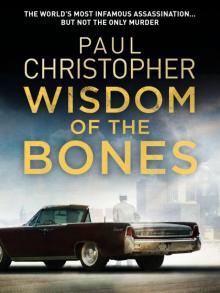 Wisdom of the Bones
Wisdom of the Bones The House of Special Purpose
The House of Special Purpose The Second Assassin
The Second Assassin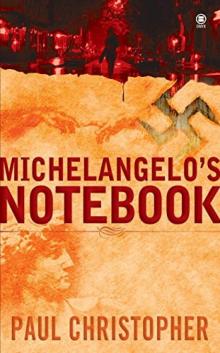 Michelangelo's Notebook
Michelangelo's Notebook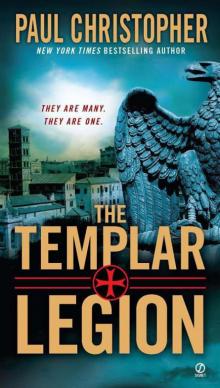 Templar Legion
Templar Legion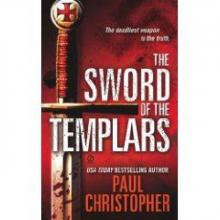 The Sword of the Templars t-1
The Sword of the Templars t-1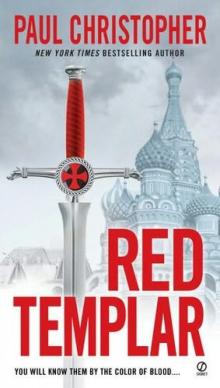 Red Templar
Red Templar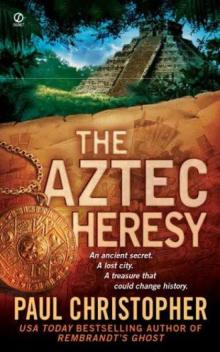 The Aztec Heresy
The Aztec Heresy The Templar Legion
The Templar Legion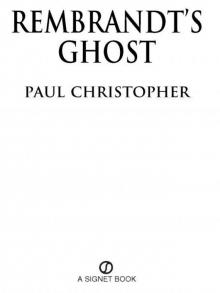 Rembrandt's Ghost
Rembrandt's Ghost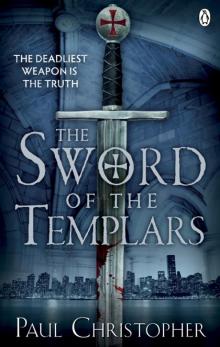 Sword of the Templars
Sword of the Templars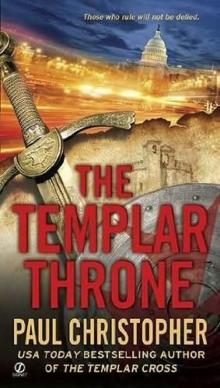 The Templar throne t-3
The Templar throne t-3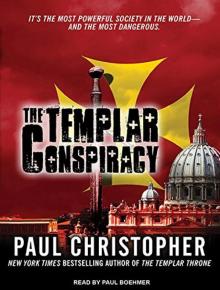 The Templar Conspiracy
The Templar Conspiracy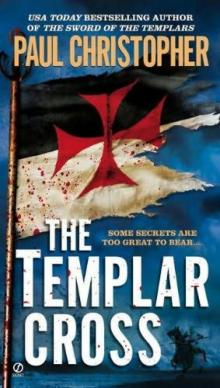 The Templar Cross t-2
The Templar Cross t-2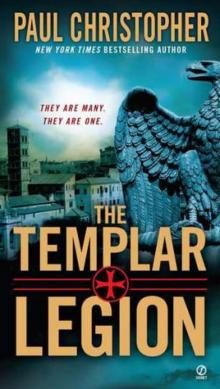 The Templar Legion t-5
The Templar Legion t-5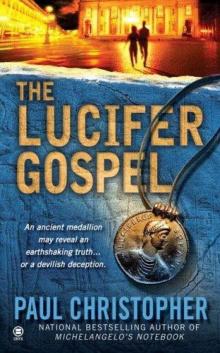 The Lucifer Gospel
The Lucifer Gospel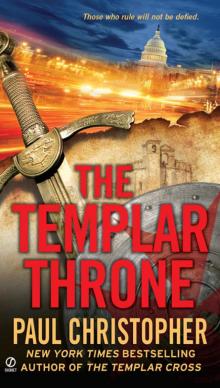 Templar Throne
Templar Throne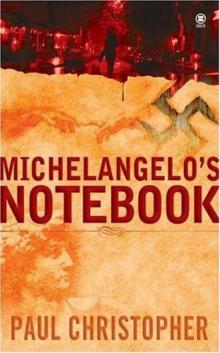 Michelangelo_s Notebook fr-1
Michelangelo_s Notebook fr-1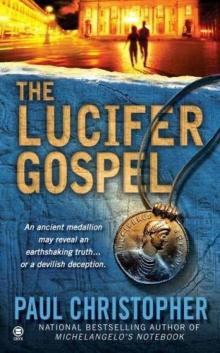 The Lucifer Gospel fr-2
The Lucifer Gospel fr-2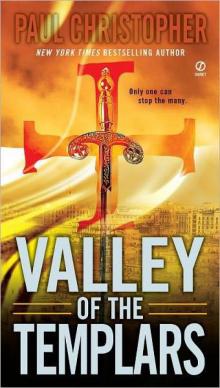 Valley of the Templars ts-7
Valley of the Templars ts-7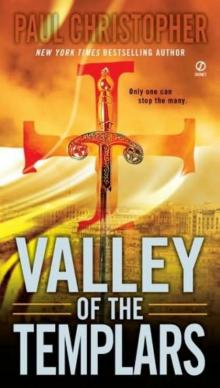 Valley of the Templars
Valley of the Templars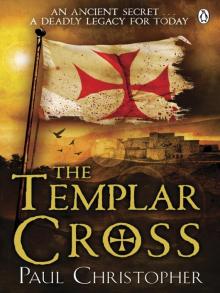 Templar Cross
Templar Cross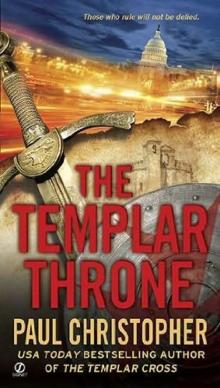 The Templar Throne
The Templar Throne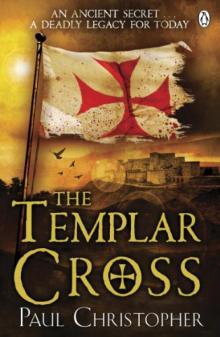 The Templar Cross
The Templar Cross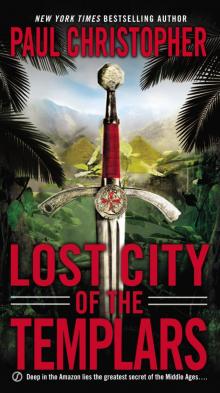 Lost City of the Templars
Lost City of the Templars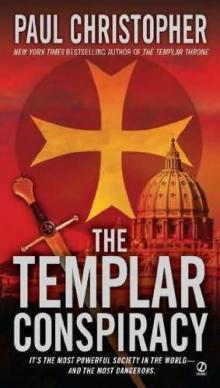 The Templar conspiracy t-4
The Templar conspiracy t-4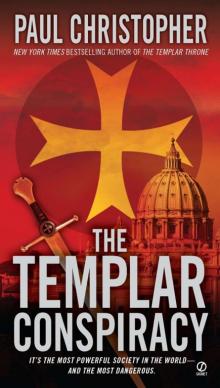 Templar Conspiracy
Templar Conspiracy